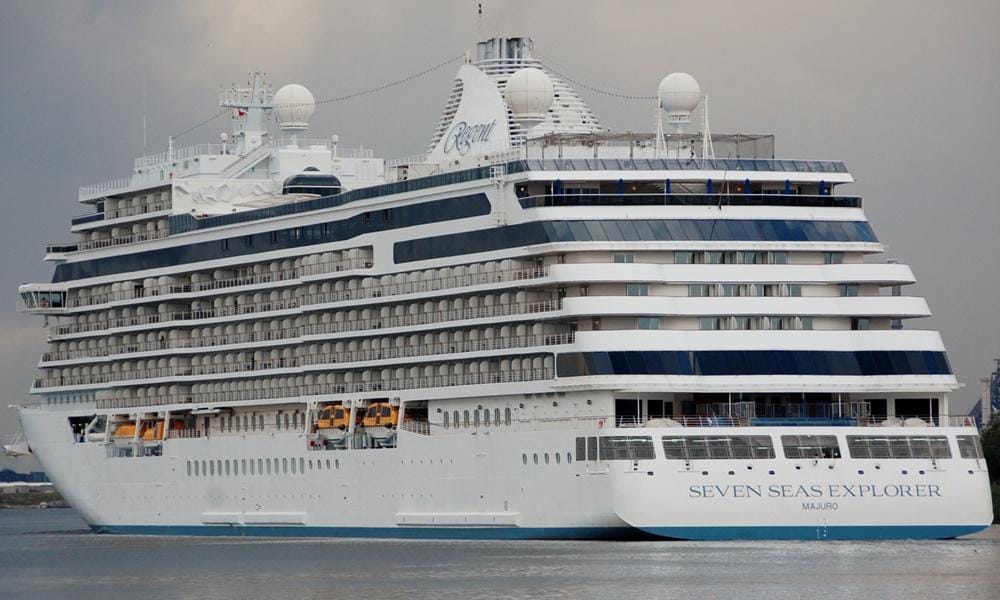Cruise Outbreaks 2025 Improved Sanitation
With GI illness outbreaks rising on cruise ships in 2025, health officials and cruise lines are ramping up sanitation and education efforts as travel season approaches peak demand.

A resurgence in gastrointestinal (GI) illness outbreaks has recently affected the cruise industry, with multiple ships reporting incidents in early 2025. The Centers for Disease Control and Prevention (CDC) has documented 17 outbreaks on North America-based ships so far this year, nearing last year’s total of 18 incidents within just five months. Most cases have been linked to norovirus, a highly contagious virus that spreads rapidly in close-quarter environments such as cruise ships.
Recent Outbreaks Across Cruise Lines
The luxury cruise ship Seven Seas Explorer from Regent Seven Seas Cruises recently experienced a GI outbreak during its 18‐night voyage from Tokyo to Vancouver. A total of 22 passengers and two crew members fell ill, showing symptoms such as diarrhea and vomiting. Although the exact cause remains unidentified, norovirus is suspected. This marked the first outbreak recorded on the Seven Seas Explorer, which has maintained a strong sanitation record since its 2016 launch. The ship underwent deep cleaning in Vancouver before starting its next voyage to Alaska on May 14, 2025.
Meanwhile, Costa Cruises’ Costa Favolosa, with a guest capacity of 3,780, reported gastroenteritis symptoms among travelers during a 19‐night Mediterranean and North Europe sailing. The outbreak prompted an extensive ship‐wide disinfection process during a scheduled stop in Edinburgh, Scotland, on May 18, 2025. Captain Valentino Savarese urged passengers to practice rigorous hygiene, including frequent hand washing and limiting physical contact.
These incidents follow a separate outbreak aboard Virgin Voyages’ Resilient Lady earlier in May, where passengers exhibited similar symptoms during a cruise across Greece, Croatia, and Montenegro. The ship implemented enhanced sanitization protocols and isolated affected travelers, although the number of cases remains undisclosed.
Sharp Increase in Cruise Illness Reports
According to the CDC’s Vessel Sanitation Program, cruise ships have been seeing a rise in GI illness outbreaks since the start of the pandemic’s recovery phase. The 17 outbreaks reported in 2025 far exceed pre‐pandemic levels and are quickly approaching annual totals recorded in previous years. Experts attribute these increases to the communal nature of cruises, where passengers share dining areas, confined living spaces, and public facilities.
While cruise ships account for only 1% of norovirus outbreaks overall, the visibility of these events often overshadows the fact that the virus predominantly spreads in settings like healthcare facilities and schools. Nevertheless, health authorities and cruise lines are working to curb its spread through rigorous disinfection, improved ventilation systems, and passenger education on hygiene practices.
Preventative Measures and Industry Response
To minimize future outbreaks, cruise lines are enhancing cleaning protocols and encouraging proactive measures among passengers and crew. Key strategies include:
- Encouraging frequent hand washing with soap and water for at least 20 seconds.
- Providing hand sanitizers in high‐traffic areas, such as dining rooms and restrooms.
- Implementing isolation procedures for symptomatic passengers and crew members.
- Performing deep-cleaning operations during port calls when necessary.
The cruise industry is also leveraging its experience with COVID-19 protocols to adapt to these challenges. Some ships now implement advanced sanitation processes involving electrostatic spraying and ultraviolet (UV) technology to ensure high-touch surfaces are thoroughly disinfected.
Challenges Ahead for Cruise Operators
The recurrence of GI outbreaks poses operational and reputational challenges for cruise operators. Frequent incidents have placed pressure on industry leaders to balance resuming pre-pandemic travel volumes with maintaining public health standards. Competitors in the hospitality sector, including resorts and airlines, are also monitoring how cruise lines handle these repeated outbreaks.
Cruise lines are likely to face increased scrutiny from regulatory bodies as the number of reported cases continues to grow. While sanitation efforts are critical, passenger behaviors remain an important variable. Experts recommend consistent communication about preventative health measures to reduce exposure risks in shared spaces.
As the summer season approaches, a peak period for cruise travel, the sector will be closely watched for its ability to manage public health risks without disrupting customer experiences.
Frequently Asked Questions (FAQs)
How common are norovirus outbreaks on cruise ships?
Despite their high visibility, norovirus outbreaks on cruise ships are relatively rare, accounting for only 1% of reported cases in the United States. However, their confined environments make cruise ships susceptible to rapid spread once an outbreak occurs.
What is being done to reduce gastrointestinal illness on cruises?
Cruise lines have introduced enhanced cleaning protocols, isolation measures, and passenger education campaigns to mitigate outbreaks. Ships are also leveraging newer technologies, such as UV disinfection and electrostatic spraying, to sanitize shared spaces.
How should passengers protect themselves from illness during cruises?
Passengers can protect themselves by frequently washing hands with soap and water, avoiding direct contact with symptomatic individuals, and staying hydrated. It is also recommended to notify the ship’s medical staff at the first signs of illness.
Which cruise lines have recorded outbreaks in 2025?
As of May 2025, cruise lines reporting gastrointestinal illness outbreaks include Regent Seven Seas Cruises, Costa Cruises, Virgin Voyages, and Holland America Line.
How do cruise operators report outbreaks to health authorities?
Under CDC guidelines, cruise operators must report outbreaks when at least 3% of the passengers or crew exhibit gastrointestinal symptoms. Detailed data is then submitted to the CDC’s Vessel Sanitation Program for review and public disclosure.
As cruise lines continue to address recurring health concerns, their focus on rigorous sanitation and passenger awareness will be critical to ensuring the safety and satisfaction of travelers worldwide.




